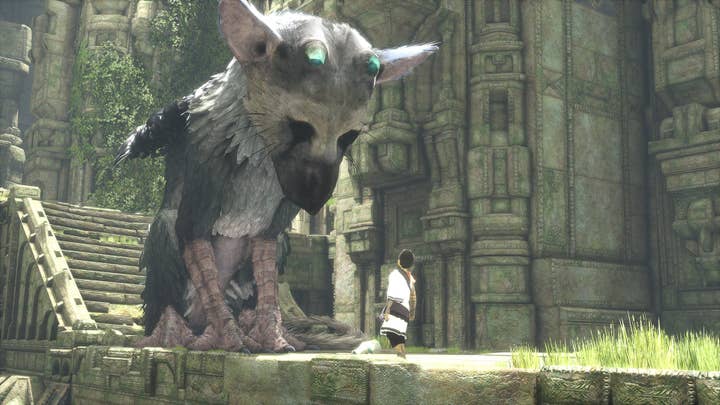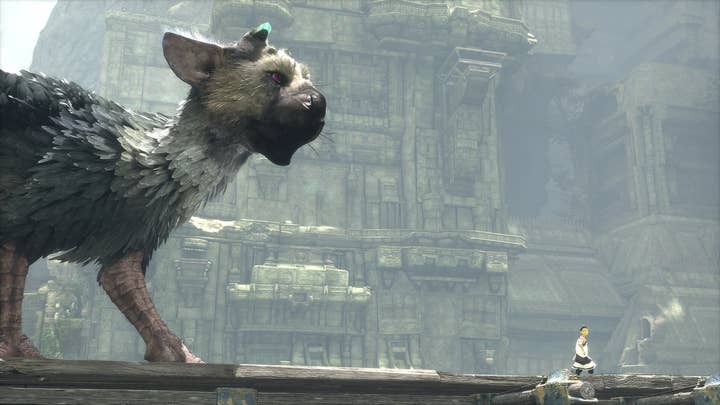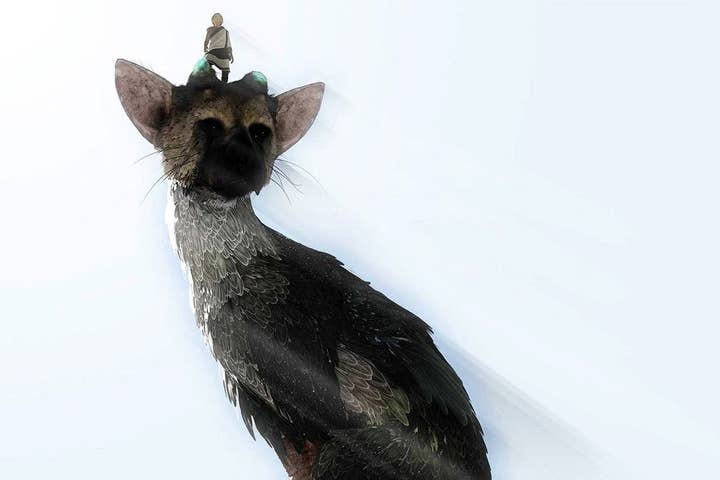The Last Guardian: "We have to deliver, we have extra pressure"
Shuhei Yoshida explains the infamous Trico's bumpy journey and how fans kept it alive
When GamesIndustry.biz sat down with Shuhei Yoshida, the president of Sony's Worldwide Studios for Sony Computer Entertainment, it was the day after he'd delivered to fans the one thing they'd been asking for since 2009, a promise that The Last Guardian was finally going to be released.
It turned out that rumours of the project's death had been greatly exaggerated, even as the games media obsessed over expired patents and the employment status of the game's designer Fumito Ueda Sony was quietly working away on the adventure title. We asked Yoshida to go into a little more detail about the delays to the project, and how he felt now he'd set the release for 2016.
Last night was, but now the reality settles in. We have to deliver, we have extra pressure, and the team has too, but it's a good pressure. The team is super happy.
The game was originally made for PS3 and we announced it in 2009 at E3. The trailer we showed was running on the engine but not at the performance, the game had a much lower framerate so we sped it up to look like it was running at 30 frames per second for the video. But the team has really really struggled to get the game running at the performance it needed and some features went missing so there are lots of technical challenges that they were going through. They spent lots of time porting the code to SPUs to make it faster but not quite at the pace that was required.

That was 2011, that was all about PS3 development going very, very slow. Come 2012 and we know the PS4 is coming. With the dev system available it became apparent for us that we just cannot continue like this in terms of the pace of development - we knew that we had to compromise on the design or the scope or the number of characters if we stayed on PS3. So in order to realise the vision we said let's do PS4.
But after that it took a long time for the engineering team to finish. They spent a lot of time optimising to PS3 but that's a really unique architecture, so everything had to be kind of redone for PS4. So that took until last year, when there was huge progress. The fundamentals of the game architecture were done so the actual game was playable and being implemented on PS4. That's how we felt confident enough to show it and say next year.
"The rumours had it that Mark Cerny and the Knack team were finishing the game, that's totally wrong"
So the game is running and playable at the same speed as the video we showed but we decided to show it in video format because it's an adventure game and the bird Trico moves as AI, so she may not do what you want to do [laughs]. We didn't want to risk making the conference presentation longer so we just made it a video.
The way the rumour was written is not true. Mark has been helping many of our teams, the same way he's giving advice to The Last Guardian team, especially on the technical side - he has deep, deep knowledge of the PlayStation 4.

Different teams need different types of help and we have the central tech group as well, these teams have also been helping too. So the rumours had it that Mark Cerny and the Knack team were finishing the game, that's totally wrong.
It's an internal Japan Studios development so when one project finishes like Knack or The Puppeteer, these are done internally, the members move to other projects. In that way they share the resources.
That was a huge reason we continued. I strongly felt that this game has to be made and we felt we came so close, so we knew the game that Ueda-San had imagined and we really wanted to finish it.
We'll have more from our interview with Shuhei Yoshida later this week, where he'll talk about the business of AAA in 2015 and the continuing evolution of the Morpheus virtual reality headset.









